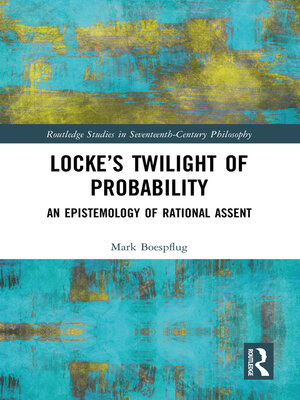Locke's Twilight of Probability
ebook ∣ An Epistemology of Rational Assent · Routledge Studies in Seventeenth-Century Philosophy
By Mark Boespflug

Sign up to save your library
With an OverDrive account, you can save your favorite libraries for at-a-glance information about availability. Find out more about OverDrive accounts.
Find this title in Libby, the library reading app by OverDrive.



Search for a digital library with this title
Title found at these libraries:
| Library Name | Distance |
|---|---|
| Loading... |
This book provides a systematic treatment of Locke's theory of probable assent, and shows how the theory applies to Locke's philosophy of science, moral epistemology, and religious epistemology.
There is a powerful case to be made that the most important dimension of Locke's philosophy is his theory of rational probable assent, rather than his theory of knowledge. According to Locke, we largely live our lives in the "twilight of probability" rather than in "the sunshine of certain knowledge." Locke's theory of probable assent has far-reaching significance insofar as it contains a wealth of novel, independently interesting, and prescient elements that precede the modern field of formal epistemology. In this book, the author argues for the central role of probable assent in Locke's philosophy. Locke's theory of probable assent is based on an epistemic modesty that claims, roughly, that our cognitive abilities are limited and that we ought to carry ourselves in believing with due caution. This modesty motivates the author's discussion of other aspects of Locke's epistemology, notably his principle of proportionality, his doxastic involuntarism, his epistemological pragmatism, and his theory of testimony. The book concludes by connecting the theory of probable assent with Locke's views on the limits of science, moral epistemology, and the rationality of faith.
Locke's Twilight of Probability will appeal to scholars and advanced students working on Locke and the history of early modern philosophy.







